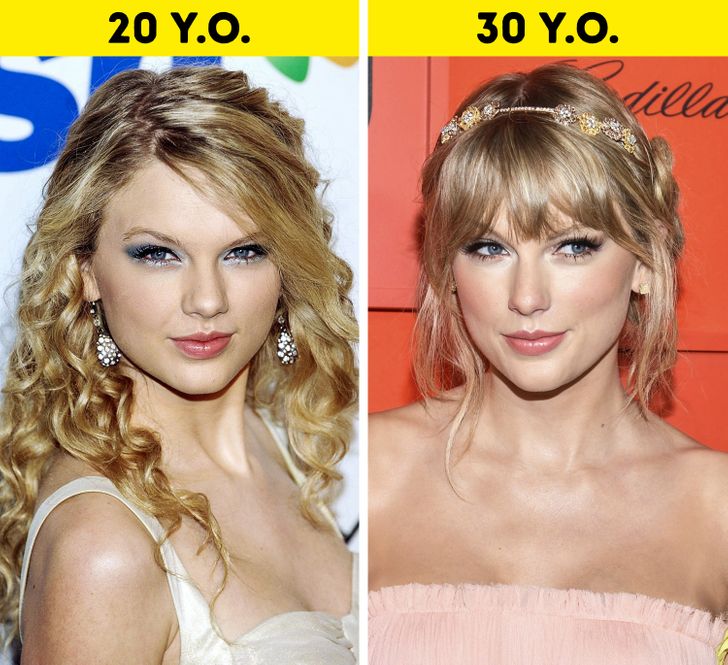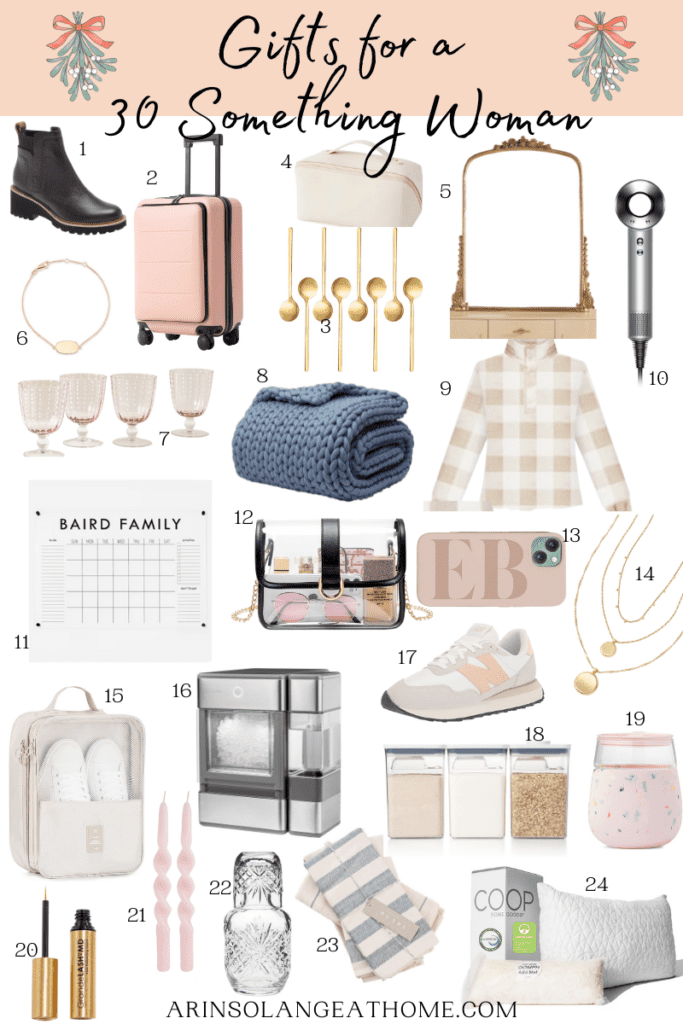Falling in love is a timeless experience, and yet it can feel different depending on where you are in life. If you’re 30 years old and wondering, “Can a 30-year-old fall in love?”, the answer is a resounding yes! However, the path to love at this stage can differ from what you may have experienced in your 20s or what you might expect from your younger years.
In your 30s, priorities shift, emotional maturity deepens, and you bring with you the lessons learned from past relationships. Some worry that they may have “missed their chance” at love by 30, but love can flourish at any age.

Is Falling in Love Different in Your 30s?
By the time you reach your 30s, falling in love can feel different from the whirlwind romances of your 20s. While the excitement and passion are still there, relationships tend to be more grounded in reality, reflecting greater emotional maturity and a clearer sense of self.
The Emotional Maturity Factor
One of the biggest differences when falling in love in your 30s is emotional maturity. In your 20s, love is often driven by passion, excitement, and exploration. However, as we age, emotional intelligence tends to deepen. You become more attuned to what you want from a relationship and are more capable of articulating your needs and boundaries.
Facts:
- Studies show that emotional intelligence increases with age, helping individuals better manage their emotions and communicate effectively in relationships.
- According to a study published in the Journal of Family Psychology, couples in their 30s and beyond tend to have more stable and satisfying relationships due to enhanced emotional regulation.
In your 30s, you are more likely to approach love with an understanding of compromise, patience, and the importance of shared values. You are also better equipped to handle the inevitable ups and downs that come with relationships. This emotional maturity helps to foster a more stable and meaningful partnership.
The Experience of Past Relationships
By 30, you’ve likely had some past relationships, whether they were long-term or fleeting. These experiences provide valuable lessons, both about yourself and what you want in a partner. Falling in love at 30 often involves using those lessons to create healthier dynamics in future relationships.
Common Lessons from Past Relationships:
- The importance of communication.
- Understanding personal and relationship boundaries.
- Knowing what qualities you truly value in a partner.
- Learning how to balance independence with togetherness.
Rather than dwelling on past failures, falling in love in your 30s can be seen as a chance to apply what you’ve learned. These experiences often lead to better decision-making and a greater ability to recognize compatibility early on. While emotional baggage may exist, many find that they are now better equipped to handle it and avoid repeating old mistakes.
Do Priorities Shift When You’re 30?
Yes, priorities often shift by the time you reach your 30s, and this can directly influence how and why you fall in love. In your 20s, relationships are often exploratory; people date to figure out what works for them. By 30, many people have clearer goals in life, and these goals shape their relationships.
For example:
- Career Goals: Many people in their 30s have more established careers, which can mean less flexibility but also greater financial stability. Balancing career ambitions with a relationship may be more important at this stage.
- Family Plans: Some people are thinking about marriage and starting a family in their 30s, which can add a layer of seriousness to their romantic pursuits.
- Personal Growth: There may be a greater emphasis on finding a partner who supports personal growth, health, and overall well-being, rather than just companionship or attraction.
Falling in love in your 30s often comes with more focus on finding a partner who aligns with your life goals and values. The stakes can feel higher because many people want to build a meaningful, long-term relationship.

Can a 30 Year Old Fall in Love Like in Their 20s?
At 30, love can feel different from how it did in your 20s, but that doesn’t mean it’s any less magical. Many people wonder, “Can a 30-year-old fall in love with the same passion and excitement they experienced in their 20s?” The answer is both yes and no. The core emotions remain the same, but the experience of falling in love becomes more intentional and, often, more deeply rooted in reality.
Differences Between Falling in Love in Your 20s vs. 30s
In your 20s, love is often filled with the energy of discovery. You’re likely figuring out who you are, what you want from life, and how a partner fits into that picture. This is the decade of trial and error, where many people experience infatuation, lust, and sometimes heartbreak, all in rapid succession.
By the time you hit your 30s, many of those uncertainties have settled. You know yourself better, and as a result, your approach to love often changes. Here are some key differences:
| Love in Your 20s | Love in Your 30s |
|---|---|
| Fueled by curiosity and excitement | Driven by emotional stability and mutual goals |
| Often exploratory and experimental | More focused on long-term compatibility |
| Tend to prioritize attraction and chemistry | Greater focus on values, emotional connection, and life goals |
| More likely to settle for short-term gratification | More likely to prioritize lasting, meaningful relationships |
While you may still feel passionate in your 30s, love is less about the novelty of the experience and more about the depth of the connection. You’re less likely to engage in fleeting relationships and more focused on finding someone whose values align with your own.
Are the Butterflies Still There?
A common concern for many entering their 30s is whether the feeling of “butterflies” will still exist when falling in love. The simple answer is yes, but with a twist.
In your 20s, those butterflies often come from the thrill of the unknown—meeting new people, learning about them, and experiencing intense attraction. In your 30s, those butterflies can still be present, but they’re usually accompanied by a sense of groundedness and maturity.
You might feel excitement, but it’s now mixed with confidence and clarity. Here’s why:
- You know yourself better: You’re more likely to recognize when someone is truly a good match for you.
- More selective chemistry: While the physical spark still matters, you might find that emotional connection or shared values create even stronger “butterflies.”
- Long-lasting passion: In your 30s, the excitement of falling in love is often deeper, built on trust, respect, and shared experiences, rather than just novelty.
So, while the initial thrill of falling in love may be a bit more tempered, it’s often replaced by a more sustainable and fulfilling form of excitement.
Do You Fall in Love Slower or Faster in Your 30s?
This is an interesting question because the pace of falling in love can vary greatly in your 30s. Some people feel that love comes quicker in their 30s because they are more experienced and know what they want, while others believe it happens more slowly as they take their time to ensure they’re with the right partner.
Let’s break this down:
- Faster: Many people report that they can more quickly determine if someone is compatible in their 30s because they’ve honed their preferences and learned from previous relationships. You’re better at recognizing red flags and are less likely to waste time on people who don’t meet your needs.
- Slower: On the other hand, some take more time to fall in love in their 30s because they’ve become more cautious. Emotional scars from past relationships, career commitments, or the desire for a more stable, serious relationship might make them approach love with a more deliberate pace.
Whether you fall in love faster or slower in your 30s, the key difference from your 20s is intentionality. The decisions are more thought-out, and emotions tend to be backed by reason and experience.

Why Some People Worry About Falling in Love After 30
As people approach or enter their 30s, it’s common to experience concerns about whether they will find love. This anxiety often stems from societal expectations, past relationship experiences, and personal pressures. However, it’s important to recognize that falling in love in your 30s—or even beyond—is not only possible but often leads to more meaningful and stable relationships.
The Pressure of Settling Down
One of the most significant worries for many 30-year-olds is the pressure to “settle down.” Society often imposes timelines for milestones such as marriage, children, and establishing a career. If you haven’t met these expectations by 30, it can feel like you’re behind.
Key concerns people face include:
- Fear of running out of time: Particularly for women, biological clocks and the idea of starting a family may add pressure to find a partner quickly.
- Comparisons to peers: Seeing friends and family members in committed relationships or starting families can create a sense of urgency or inadequacy.
- Cultural or familial expectations: Some cultures place a high emphasis on being married or in a relationship by a certain age, which can lead to additional stress.
However, it’s essential to challenge the idea that love has a deadline. Many people find fulfilling relationships later in life, and the pressure to settle down can sometimes lead to poor relationship choices. Rushing into a relationship to meet societal expectations may result in choosing the wrong partner, rather than waiting for the right one.
Fact: According to the U.S. Census Bureau, the average age for first marriages has steadily increased over the past few decades, with more people getting married in their 30s than ever before.
Feeling “Too Old” to Start New Relationships
Another common concern is the idea that 30 is “too old” to start dating again, especially for those who have recently come out of a long-term relationship or are entering the dating scene for the first time.
The reality, though, is that love knows no age limit. While it’s natural to feel that dating in your 30s might be more challenging, there are actually many advantages to finding love at this stage:
- More clarity on what you want: At 30, you likely have a better sense of what you’re looking for in a partner and are less willing to settle for someone who doesn’t meet those criteria.
- Established independence: Unlike in your early 20s, you’re more likely to be financially independent, emotionally stable, and secure in your career, making you more attractive as a partner.
- Confidence and self-awareness: With age comes greater self-confidence. You’re more likely to enter a relationship as your authentic self, without the insecurities that may have plagued your younger years.
Real-life case study:
- Case Study: Tina’s Story
- Tina, 32, had always focused on her career and didn’t date much in her 20s. When she hit 30, she feared she had missed her chance at love. However, by shifting her perspective and embracing her age, she met her now-husband at 34. Tina shares: “In my 30s, I knew what I wanted, and I wasn’t afraid to go after it. It wasn’t about rushing into something because of age, but about finding the right connection when the time was right.”
Career and Life Stability: Does It Get in the Way?
For many in their 30s, career growth is a top priority. This can raise concerns about whether there is time to balance work and a serious relationship. The demands of a busy career can make it feel like love is impossible to fit into an already full schedule.
However, love and career don’t have to be mutually exclusive. In fact, many people find that their 30s offer more career stability, which can actually enhance relationships. Here’s how:
- Financial stability: In your 30s, you’re more likely to have a stable income, which reduces the financial stress that can strain relationships.
- Work-life balance: As you gain more control over your career, you may have more flexibility to invest time in dating and building relationships.
- Shared career goals: Many couples in their 30s find that they can bond over their career aspirations and support each other’s professional growth.
Practical tips for balancing love and career in your 30s:
- Set boundaries at work: Prioritize time for personal relationships, even in a demanding career.
- Look for a partner with shared values: Seek out someone who understands your career goals and is supportive of them.
- Use your time wisely: With better time management skills in your 30s, it’s easier to carve out time for dating and building connections without sacrificing professional ambitions.

What Does Falling in Love in Your 30s Look Like?
Falling in love in your 30s can look quite different from the experiences you might have had in your 20s. At this stage of life, love often takes on a deeper, more intentional meaning. People in their 30s tend to prioritize emotional connection, shared values, and long-term potential over fleeting excitement. The search for a life partner becomes more focused, and the qualities you look for in a relationship are likely more defined.
Finding Love Through Different Channels
The ways people meet potential partners also change as you move into your 30s. While the typical social scenes of your 20s—bars, clubs, college settings—may no longer play a significant role, there are still many avenues to find meaningful connections.
Common Ways to Meet Partners in Your 30s:
- Online dating: Many people turn to dating apps like Hinge, Bumble, and Match.com in their 30s. These platforms can be great for connecting with like-minded people who are also focused on long-term relationships.
Fact: According to a 2021 Pew Research report, about 30% of U.S. adults have used an online dating site or app, and among those aged 30 to 49, 31% have formed lasting relationships through these platforms.
- Social circles: Friendships in your 30s tend to be more stable and meaningful. Often, friends can introduce you to people who share similar values, interests, or lifestyles.
- Hobbies and interest groups: Joining local clubs, sports leagues, or community organizations can be a fantastic way to meet new people. Whether it’s a cooking class, hiking group, or volunteering event, shared activities often create organic connections.
- Professional networks: At 30, many people are established in their careers, which can offer opportunities to meet like-minded professionals. Networking events, conferences, and even work-related gatherings can be places where relationships begin.
Tip: In your 30s, being proactive about your social life is key. Even if you’re busy with your career or other commitments, finding time for activities that expand your network is crucial to creating opportunities for love.
Dealing with Skepticism or Fear of Commitment
By the time people reach their 30s, they’ve often accumulated some emotional baggage from past relationships. This can lead to skepticism or even a fear of commitment, making the process of falling in love more cautious.
Common emotional hurdles include:
- Fear of getting hurt again: After experiencing heartbreak or disappointment, it’s natural to approach new relationships with caution. This can sometimes make it difficult to open up emotionally or trust a new partner.
- Fear of losing independence: In your 30s, you’re likely used to living independently—emotionally, financially, and professionally. The fear of sacrificing personal freedom for a relationship can sometimes hold people back from committing fully.
Strategies to overcome skepticism or fear of commitment:
- Work on emotional healing: If past hurts are still impacting you, consider talking to a therapist or relationship coach to work through unresolved feelings. This can help you enter a new relationship with a clean slate.
- Communicate openly: Be honest with potential partners about your fears and concerns. A good partner will understand and support you through the process.
- Take things slowly: There’s no rush in falling in love. Allow the relationship to develop naturally at a pace that feels comfortable for both of you.
Fact: According to the American Psychological Association, communication and emotional intelligence are key to overcoming past relationship challenges and building healthy new ones. Open dialogue helps create trust and long-term compatibility.
Are Relationships in Your 30s More Stable?
One of the major advantages of falling in love in your 30s is that relationships tend to be more stable compared to those in your younger years. Emotional maturity, life experience, and clearer goals all contribute to this stability.
Reasons why relationships in your 30s are more stable:
- Better communication skills: As you age, you likely become more adept at expressing your needs, desires, and boundaries in a relationship. Clear and effective communication is a cornerstone of any healthy partnership.
- Shared long-term goals: Many people in their 30s are focused on building a future—whether it’s planning for marriage, starting a family, or buying a home. When both partners are on the same page regarding these goals, it creates a sense of stability and direction.
- Less drama: The emotional volatility often associated with younger relationships tends to diminish in your 30s. People in this stage of life are usually more self-aware and grounded, leading to fewer misunderstandings and unnecessary conflicts.